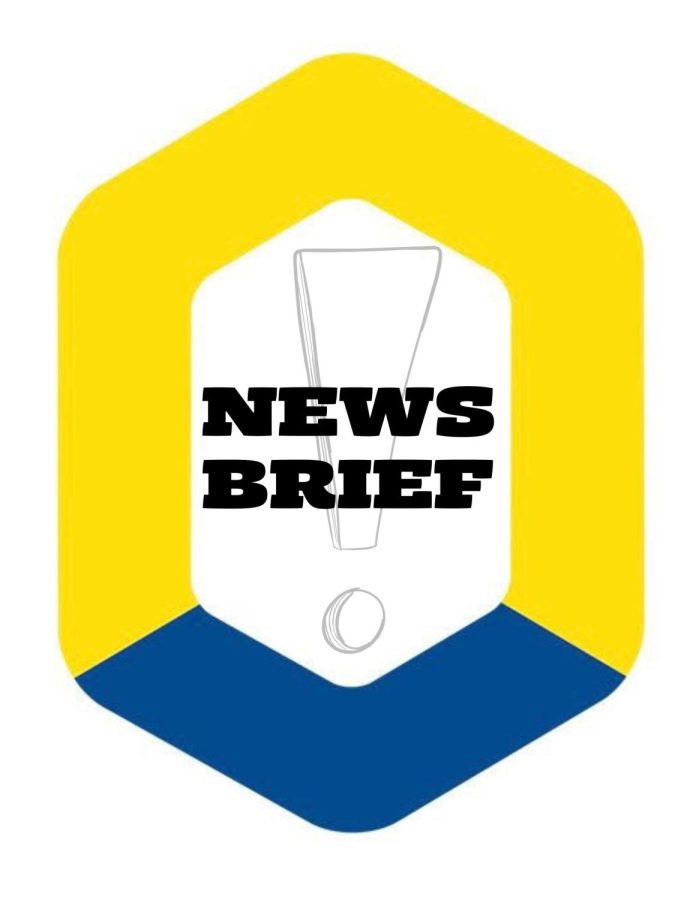Over a dozen Augustana classes and faculty gathered in Clinton, Iowa, and met with city officials last Wednesday, officially beginning a landmark year-long partnership centered around developing and carrying out sustainable community initiatives.
The partnership, titled the Sustainable Working Landscapes Initiative (SWLI), involves students and faculty helping to complete an assortment of community-identified projects alongside city officials over the next year. Wednesday’s meeting was the first workday collaboration between the city and college, as students were given city tours, gathered background information, and began initial work on the projects.
The projects range from communication to accounting initiatives, and center around the theme of Clinton’s sustainability, or its ability to promote and maintain sustainable living.
According to Augustana’s website, the initiative is designed to benefit chosen communities with hundreds of hours of student and faculty work on their sustainability projects. In exchange, students will receive “interdisciplinary learning experiences (whereby they can) acquire the skills necessary to solve real-world societal problems.”
Tara Cullison, the Program Manager for the Upper Mississippi Center (UMC), was one of the administrators who organized the gathering of Augustana students for Wednesday’s workday in Clinton. She said the idea for SWLI was inspired by the successes of similar graduate-level projects taken on by institutions like the University of Oregon. UMC Director Dr. Michael Reisner and other faculty learned about the model for these projects after having attended several Sustainable City Year Conferences there. The challenge however, according to Cullison, was applying that same model to Augustana’s environment.
“It’s based off of a graduate-level model, so for Augustana, we kind of had to take a step back and throw in a liberal arts perspective,” said Cullison. “We had to alter it a little bit to where we could handle sustainability projects that were at the undergraduate level.”
The college began accepting a wave of proposals from surrounding communities looking to solve their own sustainability issues as early as last academic year. In March of 2015, Clinton, Iowa’s proposal was chosen. That city’s proposal included over a dozen projects in economic, social, and environmental sustainability, which differentiated it from the other communities that applied. Cullison said this was important to SWLI’s broad mission of involving the entire campus community.
“As our first community partner, we wanted them (Clinton) to grasp that holistic idea of trying to get the whole campus outside into the community and doing work,” Cullison said.
Wednesday’s SWLI work day provided Augustana students their first opportunity to do exactly that. Junior Brenna German and her geography class were one of several that were given tours of the city’s public services. German’s class rode on the city’s bus system and administered questionnaires to a few frequent riders. The questionnaire was the first part of the class’s goal create solutions for increasing ridership.
“We’re primarily concerned with improvement and how to increase the number of public transportation users,” said German, “and we wanted a better understanding of what it’s like to experience the transit system.”
German said Clinton’s bus system was initially “confusing,” as the students in her class rode the bus for nearly a half hour before realizing they had gotten on the wrong bus. She also observed that the system seemed more partial to the residents of Clinton rather than outsiders or tourists.
“I was surprised at how confusing it was, for a town like Clinton,” German said. “We got on the wrong bus and didn’t realize it for 30 minutes. If you rode often, you knew where the stops were.”
SWLI findings like these will be beneficial to the city, according to Clinton city administrator Jessica Kinser, one of several city officials who met last Wednesday with nearly 100 Augustana students at Clinton’s Eagle Point Lodge. The city has invested $15,000 to help cover day-to-day expenses relating to SWLI research, but Kinser said investment in exhaustive research like this is key for a city that lacks the manpower and financial resources to complete the projects alone.
“I couldn’t even put a value on what we’re getting from Augustana,” said Kinser. “We can’t stay stuck forever in saying we don’t have enough money or people to do this, so why not bring hundreds of students and faculty to address our issues?”
Kinser and other Clinton city officials face community-wide problems such as steady population declines and lack of jobs, which has lead to a relatively high level of poverty and low-medium income housing. In order to make decisions about what to do about problems like these, Kinser stressed the importance of hard evidence and has made data collection from SWLI projects a top priority.
“The goal that I have had is making sure we have information to help move us forward, to ensure we’re making decisions based in data,” said Kinser. “ It’s not very often that we’ve come forward with substantiated facts.”
Facts that students like German hope will help in whatever ways possible, even if the impact is small.
“Most of the Clinton city officials are very optimistic and I don’t know if all of their goals will be met,” said German. “But I do know that this will be a great opportunity for Augustana students to get out into the community, and will make at least a small impact.”
All projects are set to be completed by the end of this academic year. Students involved with projects will be able to track their project’s progress through the year via the City of Clinton’s website. Kinser hopes this will allow students to see the direct impact of their work and encourage the college’s long-term partnership with the city.
“I think that it’s a cool opportunity for the work to have a real-world impact, which not a lot of college students get,” Kinser said.





































































































